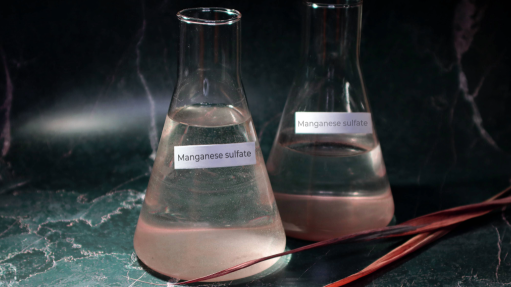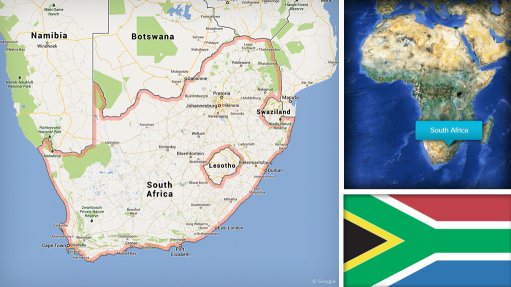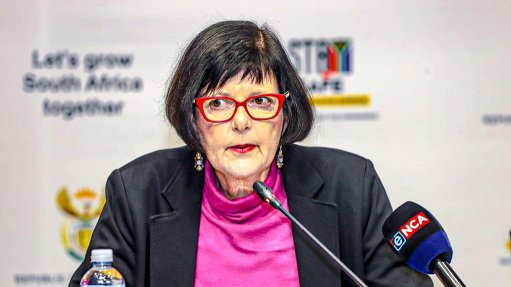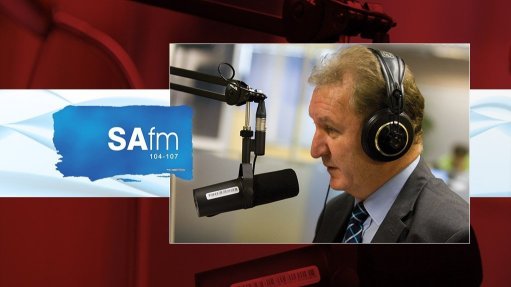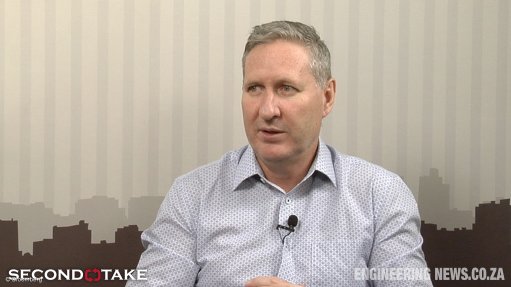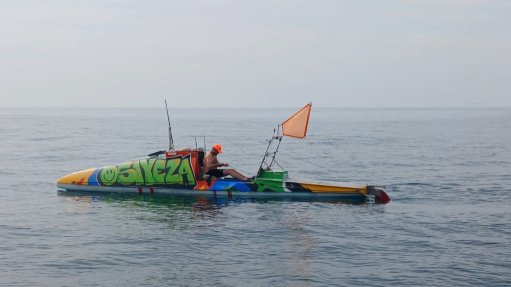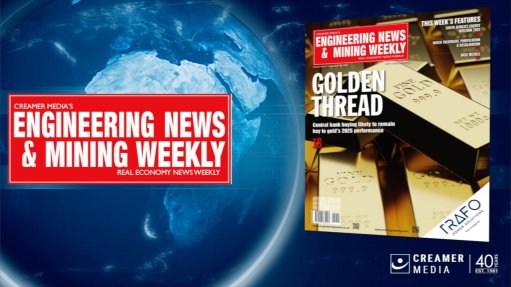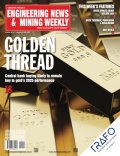Six ecosystem research sites selected for freshwater and terrestrial environmental observation network
The National Research Foundation's (NRF's) South African Environment Observation Network (SAEON) has selected six ecosystem research sites across the country for the Expanded Freshwater and Terrestrial Environmental Observation Network (Efteon).
“South Africa’s investment in Efteon is a major advancement towards improving our national capacity to understand critical ecological processes and how they support and respond to the societies depending on them,” says NRF CEO Dr Molapo Qhobela.
Each of the six selected ecosystem research sites represents a large landscape in one of the major biomes in South Africa and includes areas representing human-transformed ecosystems such as urban areas and agricultural systems.
The thematic focus of the Efteon programme is on ecosystem processes, the state of the environment and the quality and quantity of ecosystem services. Social systems, including economic systems, fundamentally rely on their ecological contexts to sustain and improve human well-being, he explains.
Research programmes performed within the designated Efteon landscapes will broadly cover the status and observed dynamics of the carbon and water cycles; climate and air quality; ecosystem condition and productivity; biodiversity; and water quality and supply.
The design of Efteon is as a modular research infrastructure consisting of an array of ecosystem research sites and high-technology ecosystem research equipment, says NRF Efteon manager Dr Gregor Feig.
“The long-term impact of Efteon will be through sophisticated people-nature observations and experimentation to clarify the complex relationships between societies and ecosystems in diverse environments under climate change as a pervasive driver of change,” he says.
Efteon, hosted by SAEON, is a large research infrastructure that is being developed under the South African Research Infrastructure Roadmap (Sarir) programme of the Department of Science and Innovation.
The designated Efteon landscapes are supported by central coordination through SAEON and data management facilities, which are shared with the two other Sarus-funded environmental research infrastructures, including the shallow marine and coastal research infrastructure, the proposed south african polar research infrastructure and general SAEON operations, says SAEON MD Johan Pauw.
EFTEON LANDSCAPES
The Greater Cape Town landscape links the Atlantic Ocean to the peaks of the Boland Mountains Strategic Water Source Area, covering steep climate gradients and a hyperdiverse mix of lowland (strandveld and renosterveld) and upland (mountain fynbos) major vegetation formations of the Fynbos Biome, interspersed with pockets of Southern Afrotemperate Forest.
This environmental template supports and interacts with a diverse socio-econo-cultural mix, inhabiting a tapestry of urban, agricultural and natural land use and land cover types. The landscape offers a direct link to a number of Sarir research infrastructures, two university nodes and the Cape Town South African Population Research Infrastructure Network (Saprin) site.
Further, the Kimberley area, Northern Cape and Western Free State landscape is the most arid of those selected and is located in the transition zone between the Nama Karoo, Arid Savanna and Grassland Biomes. Urban developments in the city of Kimberley and land use change resulting from developments in the agriculture, energy and mining sector are a feature of this landscape.
Hydrologically, the area is important, as it is trisected by major river systems draining the interior of the country. Close links to the newly promulgated Sol Plaatje University and the University of the Free State are expected.
In addition, the Garden Route Gateway landscape provides access to a large number of biomes such as Fynbos, Southern Afrotemperate Forest, Succulent Karoo and Coastal Thicket.
Hydrologically, this landscape has river systems draining the Karoo region and short-course high-energy systems draining the Cape Fold Mountains. This area is home to coastal wetlands and exhibits an excellent source-to-sea opportunity.
"The area is undergoing rapid urbanisation and agricultural intensification. Strong links have been developed in this concept to a number of satellite sites, extending the footprint of the infrastructure into the surrounding biomes."
The fourth ecosystem, the Northern Maluti-Drakensberg landscape, lies in the northern sections of the Maluti-Drakensberg escarpment in the headwaters of the Tugela river where complex socioecological issues are emerging.
It builds on the historical research site at Cathedral Peak and extends the research infrastructure out of the World Heritage Site into areas of both subsistence and commercial agriculture in the headwaters of the Tugela river. This area is of value as a high-altitude location with C3/C4 grassland, and grassland/savanna transitions.
Further, Maputaland is the most tropical of the selected landscapes and is an important region for observing changes in the impact of tropical meteorological systems.
The system presents a valuable hydrological research site as it is a groundwater-driven system exhibiting strong responses to land use and climatic influences and abstraction resulting in significant social and ecological consequences.
Finally, the Lowveld landscape links the extensive historical social and ecological research infrastructure across land tenure and conservation systems.
The landscape comprises conservation lands use (Kruger National Park and private conservation areas) that are well studied, with adjacent lands under traditional authority management and with villages that are well studied through the Saprin Agincourt Research infrastructure.
The landscape is bisected by a number of rivers that pass through the different land use systems.
Comments
Press Office
Announcements
What's On
Subscribe to improve your user experience...
Option 1 (equivalent of R125 a month):
Receive a weekly copy of Creamer Media's Engineering News & Mining Weekly magazine
(print copy for those in South Africa and e-magazine for those outside of South Africa)
Receive daily email newsletters
Access to full search results
Access archive of magazine back copies
Access to Projects in Progress
Access to ONE Research Report of your choice in PDF format
Option 2 (equivalent of R375 a month):
All benefits from Option 1
PLUS
Access to Creamer Media's Research Channel Africa for ALL Research Reports, in PDF format, on various industrial and mining sectors
including Electricity; Water; Energy Transition; Hydrogen; Roads, Rail and Ports; Coal; Gold; Platinum; Battery Metals; etc.
Already a subscriber?
Forgotten your password?
Receive weekly copy of Creamer Media's Engineering News & Mining Weekly magazine (print copy for those in South Africa and e-magazine for those outside of South Africa)
➕
Recieve daily email newsletters
➕
Access to full search results
➕
Access archive of magazine back copies
➕
Access to Projects in Progress
➕
Access to ONE Research Report of your choice in PDF format
RESEARCH CHANNEL AFRICA
R4500 (equivalent of R375 a month)
SUBSCRIBEAll benefits from Option 1
➕
Access to Creamer Media's Research Channel Africa for ALL Research Reports on various industrial and mining sectors, in PDF format, including on:
Electricity
➕
Water
➕
Energy Transition
➕
Hydrogen
➕
Roads, Rail and Ports
➕
Coal
➕
Gold
➕
Platinum
➕
Battery Metals
➕
etc.
Receive all benefits from Option 1 or Option 2 delivered to numerous people at your company
➕
Multiple User names and Passwords for simultaneous log-ins
➕
Intranet integration access to all in your organisation






